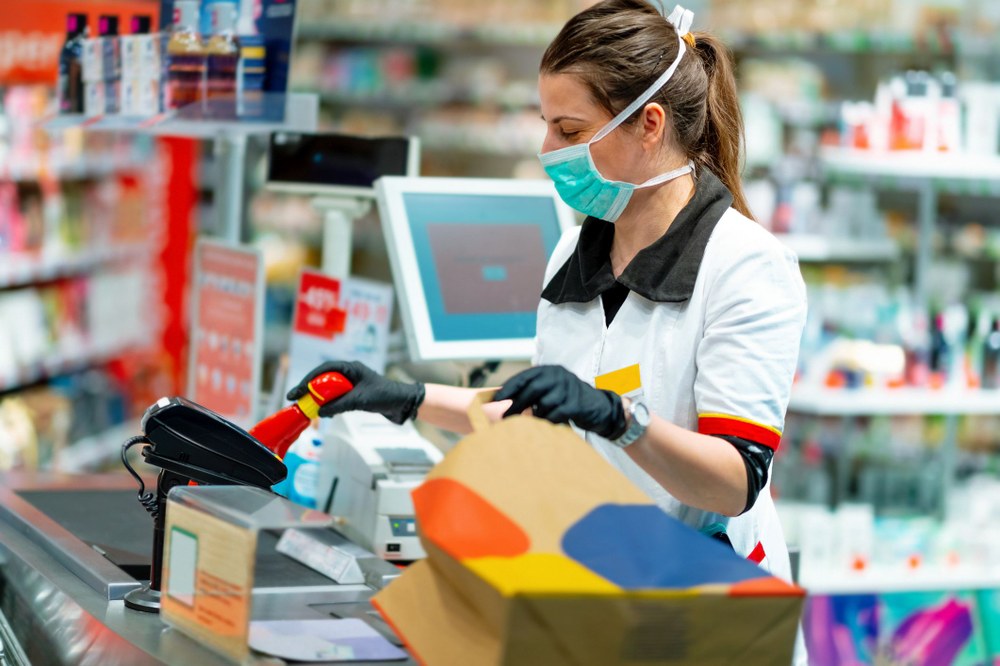Posted: April 24, 2020
UNIVERSITY PARK, Pa. — Is the novel coronavirus spread by food? As the extreme contagiousness of COVID-19 has become clear, that question has been asked over and over. The answer, according to food safety experts in Penn State's College of Agricultural Sciences, is that there is no evidence that it can be spread via food or food packaging.

“COVID-19 is a respiratory disease, and coronaviruses generally are transmitted from person to person through respiratory droplets," said Catherine Cutter, professor of food science and Penn State Extension assistant director for food safety and quality programs.
Studies have demonstrated the low survival rate of coronaviruses on surfaces, so there is a very low risk of spread from packaged food products that are shipped and stored over a period of days or weeks, Cutter explained, adding that the major risk of spread in food-related enterprises is connected to people.
As cases have become more prevalent throughout the country, there is an increased risk for everyone, including people who work with food in grocery stores, as well as in food-processing operations, Cutter said. Person-to-person spread of the novel coronavirus — from someone who has the virus to someone who doesn't — is the largest risk for transmitting this respiratory pathogen.
During the past week, two meat-processing facilities in Pennsylvania had to suspend operations when several workers became ill with COVID-19, noted Martin Bucknavage, senior food safety extension associate in the college's Department of Food Science. “And there have been isolated cases where grocery store workers have become ill," he said. “These developments lead many to ask about the risk this virus poses with the food we buy. The answer is, the risk is very minimal."
Coronaviruses have been shown to survive at freezer temperatures; however, it is still a low risk because freezer foods are rarely, if ever, handled by workers with bare hands, Bucknavage pointed out. They wear gloves. In addition, modern freezers have defrost cycles that provide a drying or desiccation effect, which can be detrimental to the virus.
Nevertheless, Bucknavage cautioned, consumers should always take food safety precautions when handling food, such as washing hands with soap and water for 20 seconds before eating. Other food safety practices are important, including cooking food to the correct temperature with a properly calibrated thermometer, proper cleaning and sanitizing of food-preparation surfaces, and storing foods at the correct temperature.
In the face of COVID-19, Penn State Extension has received numerous questions about the need to disinfect the outer packaging or surface of foods purchased at stores. The question often stems from worries about another shopper — who may be infected or carrying the virus — handling the items shortly before.
“Packaging has not been identified as a source of infection, and we expect the risk to be very low," Bucknavage said. “However, since research demonstrates that the virus can survive for a short period of time on surfaces, one can further reduce their risk by storing food items for a day or longer before using, or harder surfaces can be wiped down with a disinfecting wipe. But the most important control measure for this virus is frequent and proper handwashing."
When it comes to shopping for food, it is important to practice social or physical distancing, Bucknavage suggested, as well as wiping down commonly touched surfaces, such as shopping cart handles, with a disinfecting wipe. In most cases, grocery stores and farmers markets have implemented several controls to keep shoppers safe.
These controls include limiting the number of shoppers in a store at any given time and following spacing procedures at the register. Shoppers need to obey these procedures for their own safety, as well as the safety of others, said Bucknavage, adding that the CDC now recommends that people wear face coverings in public venues.
“While face coverings are not fool-proof measures for COVID-19 control, the coverings can limit the spread of aerosols coming from the mouth and nose," he said. “Aerosols from those individuals carrying the virus are a major concern for COVID-19 spread, so reducing their emission will go a long way to reducing the risk for others in the same space."
For more information on how COVID-19 is affecting Pennsylvania food businesses, visit https://extension.psu.edu/coronavirus.

